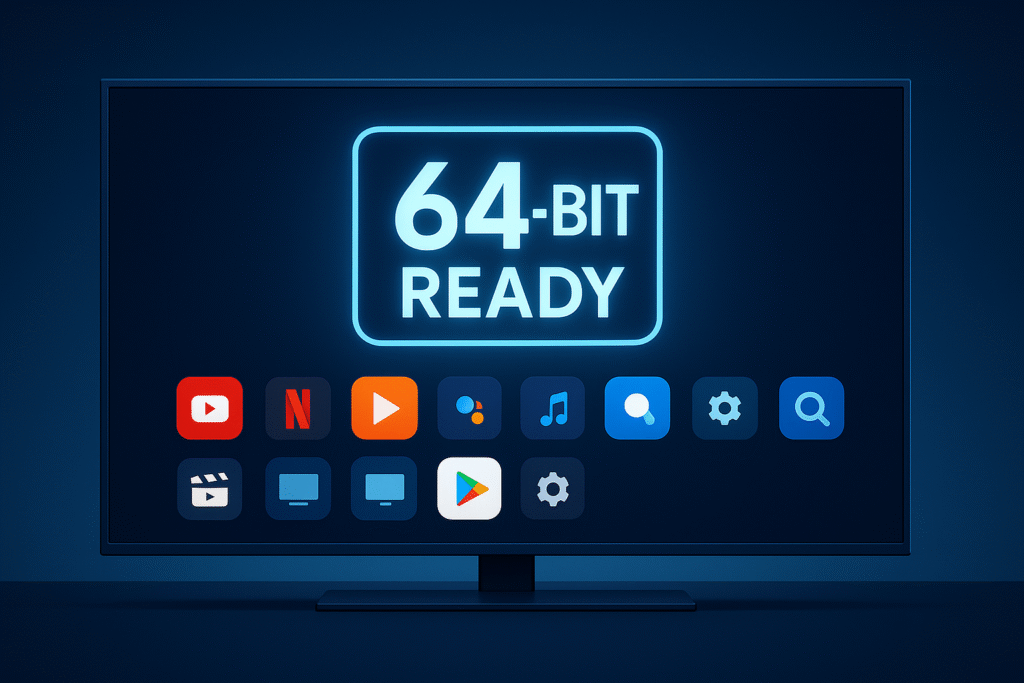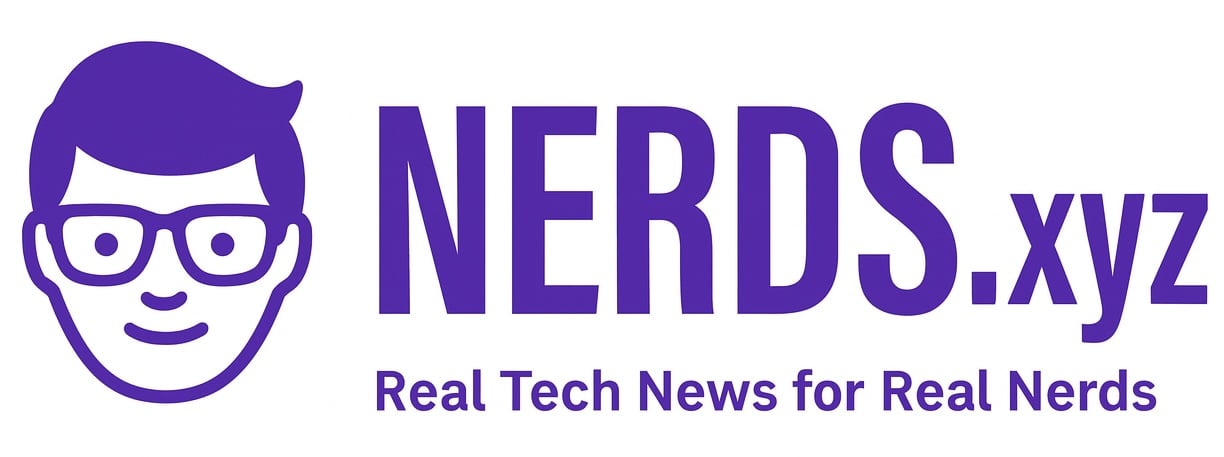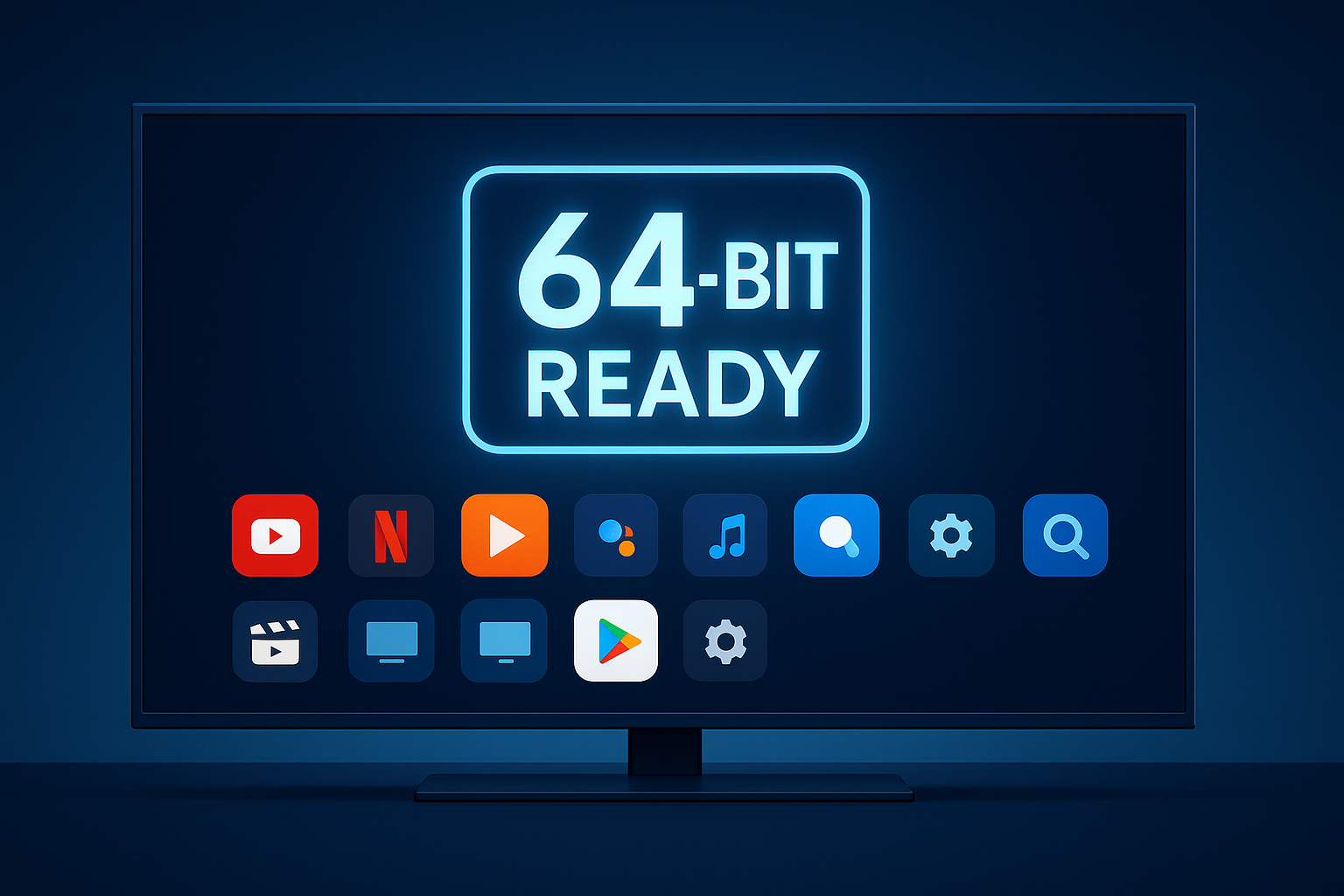
Google is preparing to bring its television platforms in line with the rest of Android. Starting August 1, 2026, both Google TV and Android TV will require app updates that include native code to provide 64-bit support. The move follows similar requirements for phones and tablets, and it paves the way for upcoming 64-bit TV devices.
For developers, the change means any new app or update with native code must include an arm64 version alongside the existing 32-bit variant. Apps that fail to do so will not be accepted on Google Play for TV devices. Google says the shift will bring better performance, shorter start times, and enable new experiences on future hardware.
If an app targets Android 15 or higher, it must also be compatible with 16 KB memory page sizes, another requirement meant to ensure smoother performance across modern systems. While 32-bit support will continue, apps can no longer be 32-bit only. Developers will need to ship both versions using App Bundle ABI splits.
Google stresses that this requirement only impacts apps containing native code, such as those with .so libraries. Tools like the APK Analyzer can help identify whether an app includes these files. To test the changes, developers can use the Google TV emulator for Apple Silicon Macs or physical hardware like the Nvidia Shield, which supports both 32-bit and 64-bit userspaces. Pixel phones running Android 7 or newer can also be configured to mimic TV resolution and DPI for sideload testing.
The company recommends developers begin checking their apps now and updating code where needed. By August 2026, all TV apps with native code must be ready for 64-bit and 16 KB page size compliance in order to remain on Google Play.


